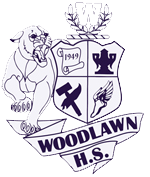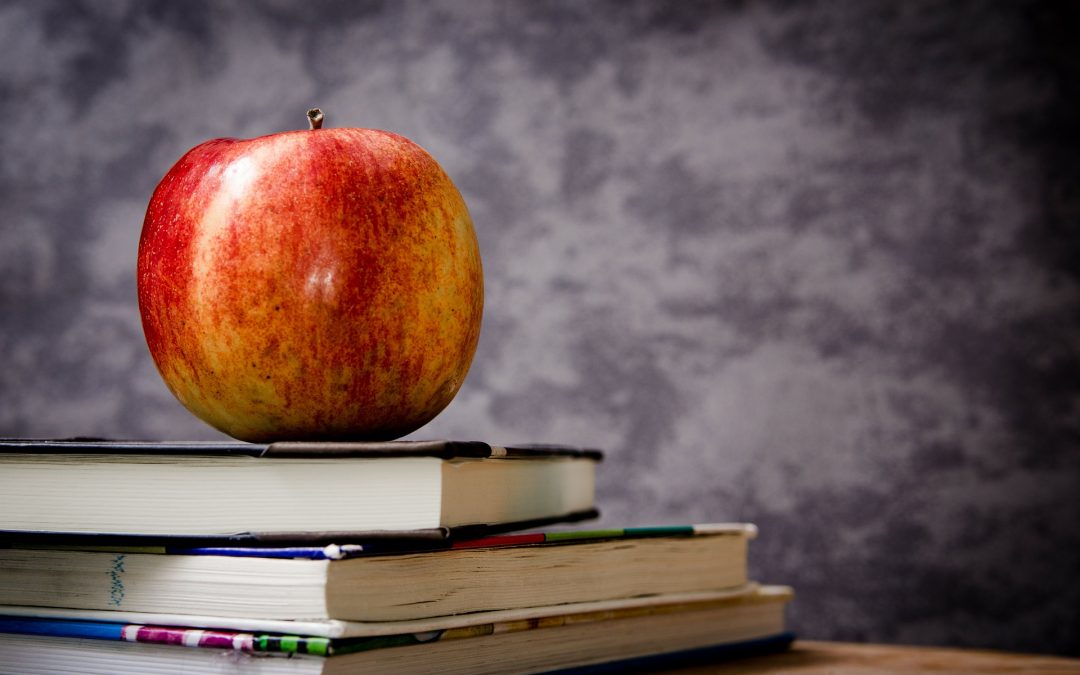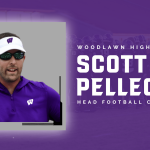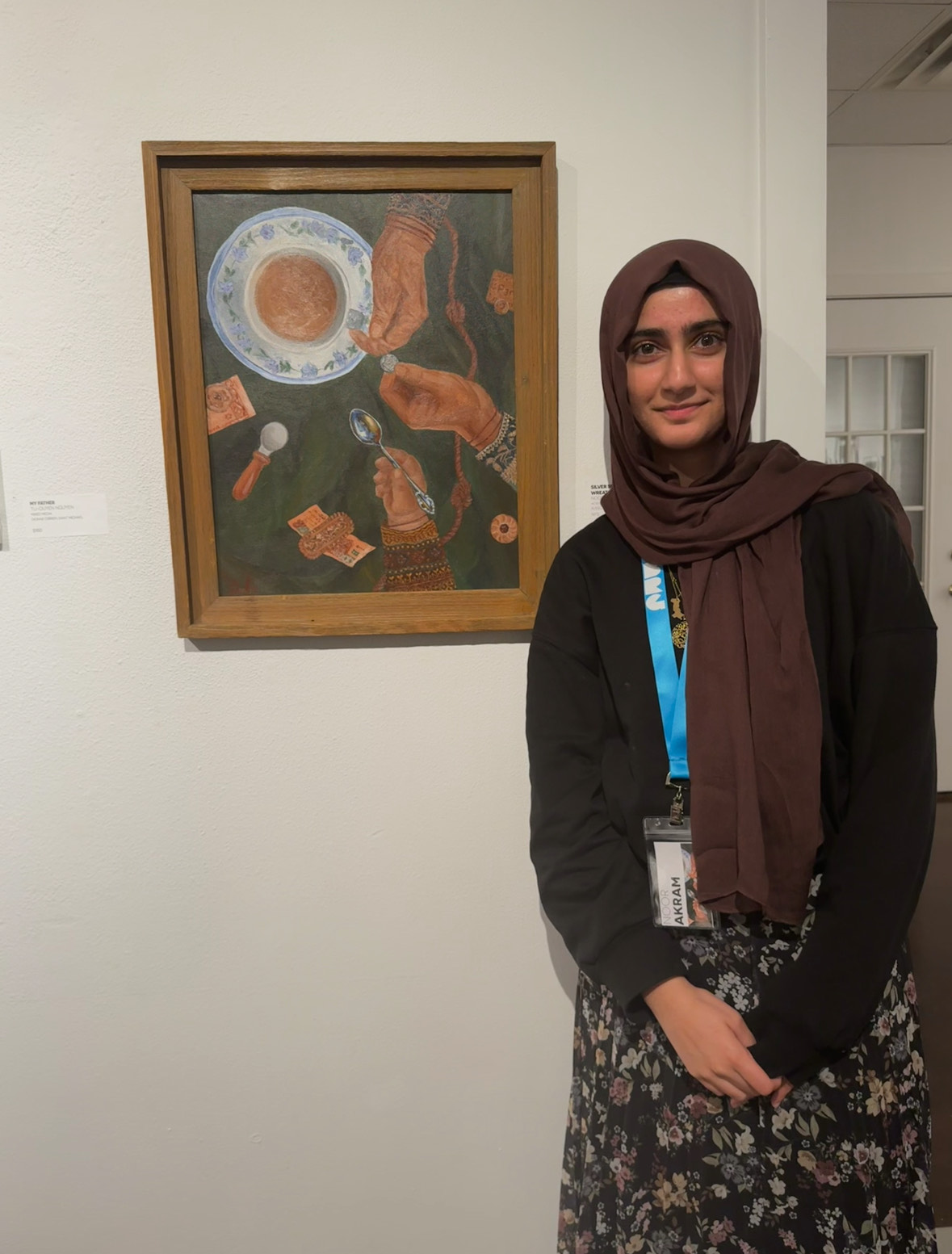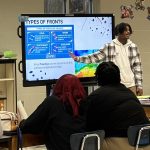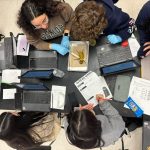Students attending Woodlawn High School during the 2019-2020 school year are expected to participate in the summer reading program.
All ninth grade students must select one of the four books below to read over summer break. There will be an assessment within the first three weeks of school. Gifted, Great Scholars, and Magnet students must read the designated book and will receive their assignment the first week of school.
- Go Ask Alice– Anonymous
- A Raisin in the Sun– Lorraine Hansberry
- Educated– Tara Westover
- Educated is required for Gifted and Great Scholars ninth graders. This is your only book.
- Heroes, Gods, and Monsters of the Greek Myths– Bernard Evslin
- Heroes, Gods, and Monsters of the Greek Myths is required reading for Magnet ninth graders. This is your only book.
All tenth grade students must select one of the four books below to read over summer break. There will be an assessment within the first three weeks of school. Gifted, Great Scholars, and Magnet students will receive their assignment the first week of school.
- Brave New World– Aldous Huxley
- Coming Back Stronger: Unleashing the Hidden Power of Adversity– Drew Brees
- Frankenstein- Mary Shelley
- The Martian– Andrew Weir
All eleventh grade students must select three articles by at least two different authors listed below. This list of authors represents various perspectives on current events. As you read each article, take note of the author’s name, title of the article, the author’s primary claim, and at least two features that support the author’s claim. You will receive an additional assignment the first day of school.
- Mitch Albom, Detroit Free Press
- Anne Applebaum, The Washington Post
- Charles Blow (on sabbatical), The New York Times
- David Brooks, The New York Times
- Frank Bruni, The New York Times
- Roger Cohen, The New York Times & International Tribune
- Gail Collins, The New York Times
- John Diaz, San Francisco Chronicle
- Maureen Dowd, The New York Times
- Chris Erskine, LA Times
- Thomas Friedman, The New York Times
- Jeffrey Goldberg, The Atlantic
- Michelle Goldberg, The New York Times
- LZ Granderson, LA Times
- Matthew Hansen, Omaha World Herald
- Jemele Hill, The Atlantic
- Ezra Klein, Vox
- Nicholas Kristof, The New York Times
- Dana Milbank, The Washington Post
- Peggy Noonan, The Wall Street Journal
- Jeneé Osterheldt, The Boston Globe
- Kathleen Parker, The Washington Post
- Terry Paulson, Townhall.com
- Leonard Pitts, Jr., Miami Herald
- Eugene Robinson, The Washington Post
- Mary Schmich, Chicago Tribune
- Ben Shapiro, Daily Wire
- Matt Taibbi, Rolling Stone
- Cal Thomas, CalThomas.com
- Jeffrey Toobin, The New Yorker
- George Will, The Washington Post
- Matthew Yglesias, Vox
- Dave Zirin, The Nation
All twelfth grade students (except for AP English Literature and Composition students) will read The Kite Runner by Kaled Hosseni. There will be an assessment within the first two weeks of school. All AP English Literature and Composition students will read How to Read Literature like a Professor by Thomas C. Foster. The assignment for this reading is copied below; it is due the first week of school.
Dear Incoming AP Students,
Welcome to AP English Literature and Composition. This summer, in preparation for our study of literature, you will read and prepare notations for How to Read Literature like a Professor by Thomas C. Foster (ISBN 978-0062301673). As you read the questions below, please answer the questions in a journal in your handwriting.
❏ You must include annotations to support your responses.
❏ Annotations will be checked.
Have a great summer and enjoy your readings. I look forward to meeting you in August.
Sincerely yours,
Tonya Collins
Advanced Placement Literature and Composition Teacher
How to Read Literature Like a Professor (Adapted from Donna Anglin)
Introduction: How’d He Do That? How do memory, symbol, and pattern affect the reading of literature? How does the recognition of patterns make it easier to read complicated literature?
Chapter 1 — Every Trip Is a Quest (Except When It’s Not) –What are the five aspects of the QUEST?
Chapter 2 — Nice to Eat with You: Acts of Communion-How do authors use meals to convey meaning?
Chapter 3: –Nice to Eat You: Acts of Vampires –What are the essentials of the Vampire story?
Chapter 4 –Now, Where Have I Seen Her Before?-What is intertextuality? What are archetypes?
Chapter 5– When in Doubt, It’s from Shakespeare. . . How does the concept of intertextuality relate to the works of Shakespeare?
Chapter 6 — …Or the Bible –What themes does Foster include in his discussion? To what Biblical stories does he allude?
Chapter 7 — Hanseldee and Greteldum –Which myths and fairy tales does Foster relate to literature?
Chapter 8 — It’s Greek to Me-Note characters or situations from Greek mythology. What claims does Foster make regarding myth?
Chapter 9– It’s More Than Just Rain or Snow For what purposes is weather used in literary and cinematic works?
Interlude — Does He Mean That –What claims do Foster make about writers?
Chapter 10 –Never Stand Next to the Hero What must the reader remember about heroes and characters in heroic tales? Why is it important to remember that characters are on “a need-to-know basis?”
Chapter 11 –…More Than It’s Gonna Hurt You: Concerning Violence-What are the two kinds of violence found in literature? What are their effects?
Chapter 12 — Is That a Symbol?-How do symbol and allegory differ? What items do authors use as symbols
Chapter 13 — It’s All Political –Note criteria Foster uses to support the title of the chapter. Define the “isms” Foster mentions.
Chapter 14 — Yes, She’s a Christ Figure, Too –Note criteria Foster uses to identify Christ figures in literature.
Chapter 15 — Flights of Fancy-How do writers use flight to convey meaning in their works?
Chapter 16 — It’s All About Sex… and Chapter 17 — …Except the Sex-What assertions does Foster make regarding sex scenes in literature?
Chapter 18 — If She Comes Up, It’s Baptism –What are the plot implications of drowning (or not drowning)? What meaning might be conveyed through a “baptism scene”?
Chapter 19 — Geography Matters… How does Foster define geography? Why is it so important in literature?
Chapter 20 — …So Does Season-How do writers use the seasons in meaningful, traditional, or unusual ways?
Interlude — One Story-What argument does Foster repeat in this chapter and how does he support it?
Chapter 21 — Marked for Greatness-What meaning do physical imperfections take on in literature?
Chapter 22 — He’s Blind for a Reason, You Know-What must a writer do in order to introduce a blind character in a work? What can blindness symbolize in a work?
Chapter 23 — It’s Never Just Heart Disease…What assertions do Foster make in order to support the title of this chapter?
Chapter 24 — …And Rarely Just Illness-According to Foster, what are the “principles governing the use of disease in literature”? Note their effectiveness as related to plot, theme, and symbolism.
Chapter 25 — Don’t Read with Your Eyes-Focus on Foster’s remarks about specific assumptions that authors make given the time and place in which they write. What does he mean when he advises, “don’t read with your eyes.”?
Chapter 26 — Is He Serious? And Other Ironies-What is meant by the “ironic mode”? What are the characteristics of irony? How and why do authors employ it? What is meant by the multivocal nature of irony in a work?
Chapter 27 — A Test Case-We will complete the test case in class.
POSTLUDE: Who’s in Charge Here? How do we know that we are “right’ or “correct?”
Envoi –What is the function of an envoi? How does Foster use it?
